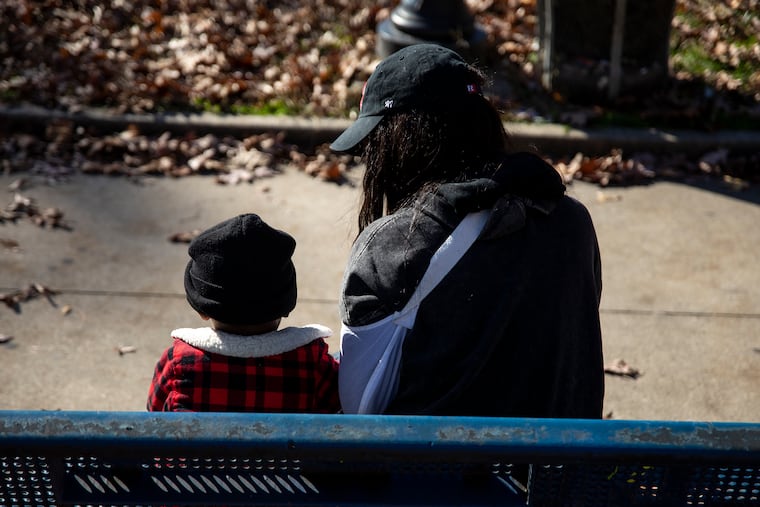Rickia Young’s brutal treatment by police makes all Philadelphians less safe | Editorial
Policing is supposed to ensure public safety. In Philadelphia, policing is a part of a public safety problem.

Policing is supposed to ensure public safety. But in Philadelphia, policing is a part of a public safety problem.
Rickia Young’s only crime was that she took a wrong turn. The Black 28-year-old single mother was driving home with her 2-year-old son and 16-year-old nephew at about 1:45 a.m., only hours after police shot and killed Walter Wallace Jr., a 27-year-old Black father of eight with a known history of mental illness, in West Philadelphia. Young found herself in the middle of a protest when a mob of officers attacked her vehicle. Video footage shows more than two dozen officers hitting the car with batons, shattering windows, dragging her and her nephew out of the vehicle while beating her, and taking her son out of his car seat in the back. To add insult to injury, the National Fraternal Order of Police used a photo of an officer holding Young’s son on social media, pushing a false narrative that police had “saved” the boy after finding him on the street.
Five officers have been placed on restrictive duty. They are still collecting paychecks funded from tax dollars. The Internal Affairs investigation is ongoing.
Young spoke to The Inquirer about the trauma she and her son have suffered. But this exhibit of police behaving brutally adds to the collective trauma of a city, particularly its Black residents. In the past six months, police bombarded the neighborhood around 52nd and Chestnut with tear gas, trapped protesters in a stampede on I-676 with more tear gas and rubber bullets, officers responded to protest with excessive force (some led to criminal charges), and shot and killed Wallace.
» READ MORE: Besieged, then betrayed
The backdrop to these incidents is a spike in gun violence. Already this year, more than 460 people have been murdered and an additional 1,700 shot. Other cities are also experiencing increases.
Most shootings in Philadelphia do not lead to an arrest. According to the Philadelphia Police Department, this year through Nov. 11, an arrest followed 46% of homicides and only 15.6% of nonfatal shootings. One reason often cited by police for the low clearance rate is that members of the community who might have information won’t talk with investigators.
Seeing images like the assault on Young and her family, the shooting of Walter Wallace Jr., and the violent response to protest, make it painfully obvious as to why so many witnesses refuse to cooperate. The FOP’s defense of brutal officers at all costs widens the divide between the police and the communities they are supposed to serve.
» READ MORE: Disarm Philly’s police union from the weapon of secret arbitration | Editorial
In the recent election, more than a half-million people voted in favor of ballot measures to end unconstitutional stop-and-frisk and establish a Citizens Police Oversight Commission in Philadelphia. That should serve as a blaring siren that Philadelphia yearns for change.
Unfortunately, there are structural barriers for real change in police accountability, such as Act 111 that sets the parameters to bargaining between the police union and the city. Meanwhile, Mayor Jim Kenney and Commissioner Danielle Outlaw should show zero tolerance for police brutality in the department. If doing it in the name of justice is not enough, they should do it in the name of public safety.